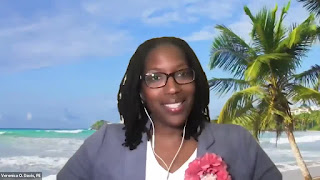 |
| Click to view recording |
- Sites can be isolated, with limited outside communication or ways to leave
- Graduate field training is loaded with power asymmetries and dependencies on leaders.
- Long hours, close working and sleeping quarters, blurry boundaries
Safety plans should include communication plans, how to access copies of fleet keys and maps so that team members aren't reliant on a single individual for resources, and list whom to contact in the event of an emergency. At least two people should be designated to receive reports. Documents should be accessible, not just on someone's hard drive or back on campus. If someone is incapacitated, at least two people should accompany them. Daily group check-ins cultivate a culture of open, honest communication so that everyone feels its safe to communicate.
Make use of a Community Agreement, a collaboratively created agreement that includes items such as task sharing, privacy, roommate assignments, alcohol and drug use, and how to change work partners or sleeping quarters. Community Agreements ensure everyone is on the same page. It can be verbally discussed and shared on a board, or through an electronic document. It should be accessible by everyone, and regularly revisited. Regularly checking in on the community agreement with the entire group reminds folks of its existence without calling out any specific bad behaviors, and furthers normalization of conversation so that when issues do arise, team members are more prepared to address.
Participants were also briefed on the "5 Ds" of bystander intervention: Direct, Distract, Delegate, Document, and/or Delay. Look for more comprehensive workshops for more information and opportunities to practice.
This was a presentation of ESF's Women in Scientific and Environmental Professions (WiSE Professions) and a collaboration of the ESF Women's Caucus, ESF Choose Action Network, UC Santa Cruz, Risk & Safety Training University of California Center, and the Center to Advance Mentored, Inquiry-Based Opportunities (CAMINO)@USCS. Earlier in this year's series, BBFF Coordinator Melissa Cronin discussed the origins and growth of this program to increase field work safety and planning, and to make programs more equitable and welcoming. A summary of "Scenario-Based Bystander Training to Prevent Sexual Harassment and Assault in Field Settings" written by PhD student Jenna Zukswert is available at http://esfwomen.blogspot.com/2021/04/building-better-fieldwork-future.html and includes a link to a full recording. For more information about WiSE Professions, please visit https://www.esf.edu/womenscaucus/speakers.htm, or contact Heather Engelman, engelman@esf.edu.

